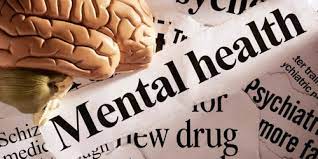Psychiatrists are trained to diagnose, treat, and support individuals facing emotional and psychological challenges. They play a key role in addressing a wide range of mental health conditions, from anxiety to obsessive-compulsive disorder. By scheduling an appointment at a psychiatry clinic, individuals can learn to lead fulfilling lives while managing their mental health conditions. Here are six disorders treated by psychiatrists, focusing on their symptoms and the tailored treatments offered for each:
1. Anxiety
Anxiety disorders are among the most common mental health conditions globally. These disorders encompass a range of conditions, including generalized anxiety disorder (GAD), social anxiety disorder, and panic disorder. Symptoms may include persistent worry, restlessness, difficulty concentrating, and physical manifestations such as a racing heartbeat or muscle tension.
Psychiatry professionals use a combination of strategies to help patients effectively manage anxiety. They can prescribe medications, such as selective serotonin reuptake inhibitors (SSRIs), to regulate brain chemistry and reduce symptoms. Therapeutic approaches like cognitive behavioral therapy (CBT) equip patients with practical tools to identify and reframe anxiety-provoking thoughts and behaviors. Self-care practices can also help with anxiety, so psychiatrists may recommend that patients engage in regular exercise, meditation, or progressive muscle relaxation.
2. Depression
Depression, characterized by persistent sadness, loss of interest in activities, and changes in sleep or appetite, is another widespread disorder. It can significantly impact one’s daily life if not properly addressed. Psychiatrists may approach depression holistically by prescribing antidepressant medications, implementing psychotherapy, and encouraging lifestyle changes that support emotional well-being.
3. Bipolar Disorder
Bipolar disorder involves dramatic mood swings that alternate between depressive episodes and periods of mania or hypomania. During depressive phases, individuals may feel hopeless and withdrawn, while manic episodes bring periods of heightened energy and impulsivity. Psychiatrists may utilize mood stabilizers, antipsychotic medications, and structured therapy sessions to support a balanced mood and help patients manage this complex condition.
4. Obsessive-Compulsive Disorder (OCD)
OCD is marked by intrusive, repetitive thoughts (obsessions) and ritualistic behaviors (compulsions) performed to alleviate distress. Treatments for OCD can include exposure and response prevention (ERP), a specific type of CBT, alongside medications like serotonin reuptake inhibitors. The combination may help patients reduce compulsive behaviors and regain control over their thoughts.
5. Attention-Deficit/Hyperactivity Disorder (ADHD)
ADHD affects both children and adults, presenting as difficulty concentrating, impulsivity, and hyperactivity. Managing ADHD involves stimulant and non-stimulant medications that improve focus and impulse control. Psychiatrists may also recommend behavioral therapy to address challenges in specific areas, such as workplace efficiency or school performance.
6. Post-Traumatic Stress Disorder (PTSD)
PTSD, stemming from exposure to traumatic events, involves symptoms like flashbacks, heightened anxiety, and emotional numbness. Psychiatrists help individuals with PTSD through trauma-focused therapies, including eye movement desensitization and reprocessing (EMDR). They may also prescribe medications to address associated symptoms like depression or sleep disturbances.
Find an Experienced Psychiatry Clinic
Mental health conditions, if left untreated, can hinder an individual’s ability to work or have social relationships. Psychiatry professionals serve as key allies in managing these challenges, offering evidence-based treatments tailored to each individual’s needs. They assist with depression, bipolar disorder, phobias, and sleep disorders. If you or someone you know is experiencing mental health concerns, reach out to a psychiatrist today to explore their treatment options.
- Braces for Adults and What You Need to Know
- Benefits of Invisible Braces for Teens and Adults
- Understanding the Link Between Behavioral Studies and Mental Health Support Services
- Key Characteristics That Support Long-Term Success in Nursing
- How Continued Nursing Education Supports Safer and More Effective Healthcare








Leave a Reply